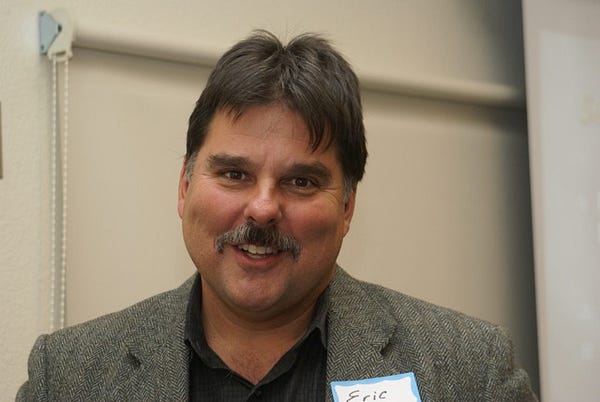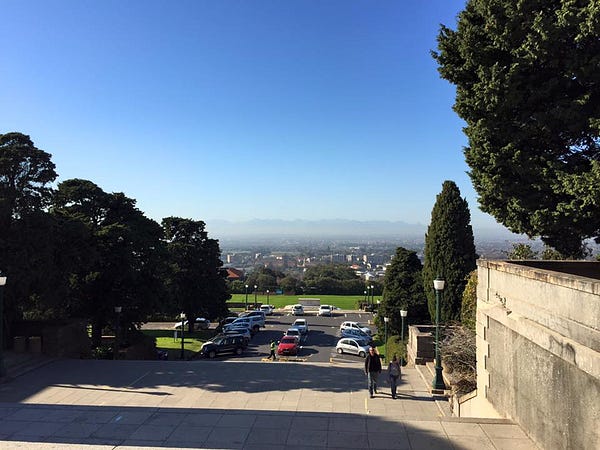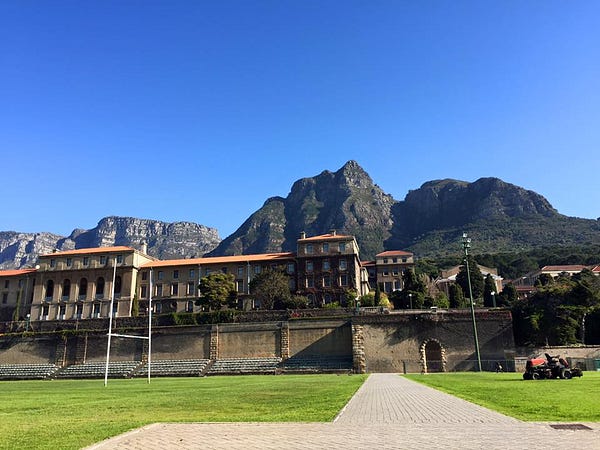
Summer Abroad South Africa: It Takes More Than a Teacher
By Laura Walters, Summer Abroad South Africa Alum, Study Abroad Writing Intern
In elementary school, teachers are involved in every aspect of a student’s learning. They teach all the subjects — reading, writing, mathematics, science, history, art, etc. — while maintaining control over a class of approximately 30 children. Middle school finds the teachers slightly less involved. They still have to control a class of 30 preteens, but they switch classes throughout the day, and only have to teach one or two subjects.
In high school teachers do the same, but at this point those preteens have become teens who — despite their immature teenage tendencies — do not need to have their hands held through a class.
Come college, teachers barely qualify as “teachers” anymore. Most are lecturers or professors, many of whom focus primarily on research. Their teaching style is much more hands off and up to the student.
There are, however, a select few talented university staff members who differentiate themselves from this group: those who lead study abroad programs.
So much more goes into preparing a study abroad program than preparing a course on campus. The study abroad faculty are teachers, tour guides, travel agents, emergency responders, chaperones, photographers, videographers, and whatever else the study abroad students need to make their time in their host country memorable, educational, comfortable, and, most importantly, fun.

Eric Schroeder is one such individual. Though he has since retired from his 30-year career at UC Davis as a lecturer for the University Writing Program and faculty director at UC Davis Study Abroad, he still comes back to lead Summer Abroad South Africa — From City to Safari, a program which I was lucky enough to join this past summer.
“The instructor is the program,” Schroeder said about study abroad staff. “There’s so much work in these programs that doesn’t show.”

After having done his South Africa trip nine times, interspersed with years doing other programs as well as directing the study abroad office, Schroeder has had to fill nearly every role imaginable.
Schroeder himself studied abroad at the University of Sussex in England as a student, but back in his day it was called “Junior Year Abroad.” There were no summer or semester options for studying abroad.
“You went for a year or you didn’t go,” Schroeder said.
Schroeder loved it so much that he graduated from UCLA early and went back to the University of Sussex to get his master’s degree.
When Schroeder returned to Sussex, he was surprised to find that there was no catalogue for the classes. He had to find an organizer for the classes he wanted to take and arrange to take them with the professor.
Planning to continue his studies in English literature and classical Greek, Schroeder found a classics professor. When they met, the professor asked, “What do you want to study?”
It turned out nobody had taken Greek at the university for two years.
As such, Schroeder essentially got to create his own class.
Each week the professor would take a book off his bookshelf, hand it to Schroeder, and tell him to read it and come back. Throughout the whole year he would meet with this professor for 25 minutes per week. During that short session, Schroeder would translate a random passage for the professor to learn vocabulary and grammar and discuss the literature.
This seemed pretty simple at first, but being one-on-one with the professor had its disadvantages.
“Only once I showed up that quarter totally unprepared, and it was obvious after like five seconds,” Schroeder said. As there was nothing productive to do with only one student who was unprepared, the professor excused Schroeder from class.
“I never made that mistake again.”
Study abroad classes are, in a way, like this. The professors get to know you so much better than those who only see you during class or in office hours.
Schroeder’s studying abroad turned into a teaching abroad career after he returned from a trip to Scotland. Since he had already been there, a friend in the UC Davis department asked him if he wanted to teach Scottish literature for the study abroad program.
Schroeder agreed. And he agreed again five more times.
After the third year teaching this class in Scotland, Schroeder became the head teacher for the program. He decided it was time for a change. He made the focus of the studies in Scotland be about ghost stories. Over the course of the quarter, Schroeder took the students on two different ghost walks at night. The best parts were, of course, the Jumper-ooters. For an extra 20 pounds, they would jump out to scare the students.
They were all worth it, Schroeder said.
Schroeder also put together an Australia study abroad program, which he then mirrored in his arrangement of his program to South Africa. The students spend three weeks in one area then move to another for a different kind of experience.
Usually when people travel, Schroeder notes, they want to look at the culture in the cities — architecture, art, history — or experience nature — see the wildlife, experience the natural wonders.
The South Africa: From City to Safari program offers both experiences.

The view of Cape Town from the University. This photo does not do it justice. -Photo courtesy of Nina Chu
The first three weeks take place in Cape Town.

A small section of the University Campus. -Photo courtesy of Nina Chu
“It’s the one place where I go where I really feel like I’m watching history,” Schroeder said. The first time Schroeder went to South Africa, Nelson Mandela had just stepped down as president. So much was fresh and raw.
“In some ways it is still raw in South Africa,” he said. “There is this promise of hope. It’s exciting, it’s vibrant.”

The entrance to Karongwe Game Reserve. -Photo courtesy of Nina Chu
Though Schroeder has taught the South Africa abroad program for years now, he still looks forward to the last five days of the trip most, which are spent at Karongwe Game Reserve. At this point, the program moves “From City to Safari,” thus giving a well-rounded experience dipping into both cultural and natural attractions.
“You always see something new in the game reserve,” Schroeder said. “Very few places is nature like it is in South Africa.”
Though he himself has organized many trips abroad for students, as faculty director at the Study Abroad office, Schroeder also heard many faculty pitches for new program ideas.
The faculty would initially be very excited, Schroeder said, but often, when the enormity of it hit them — when they realized they would be completely responsible for a group of students for weeks, sometimes months, at a time — the conversation often ended there.
Out of the handful who continue to pursue their programs, many want to quit after the first trip. Schroeder strongly urges them to go again the next year before they give up. The first time is just too overwhelming to determine how the program will go next time. Schroeder also recommends that the teachers visit the host country themselves before taking students there, just to get comfortable with the environment, much like how he went to Scotland before he got the position teaching there.
“One time or another these faculty have dealt with everything,” Schroeder said. Going there ahead of time minimizes some of this stress by familiarizing them with the culture. This is, in part, why there is currently no one lined up to take Schroeder’s place on the South Africa summer abroad trip: no one has been there yet. He may have retired from his position as director, but he agrees to come back to keep the South Africa program going.
This year, Schroeder received the Charles P. Nash Prize for his work among the faculty members at UC Davis.
“As director of Summer Abroad, Dr. Schroeder transformed the program from a small program with two staff members and just a few programs abroad to one that now has over 40 programs in Europe, Asia, the Middle East, Africa, Australia and Latin America and includes not only Summer and Quarter Abroad programs but also Seminars and Internships Abroad,” Aliki Dragona and Marlene Clarke wrote in their nomination.

Though this is all very impressive, this is not the Eric Schroeder my study abroad peers and I got to know in South Africa. The Eric we know is a bird watcher (all self-taught), a food connoisseur (not once were we disappointed when it came to food in South Africa), a teacher (ask him anything), a student (he is not afraid to ask anything), a party planner (two students got to celebrate their birthdays in South Africa), a scuba diver (he went off to have his own shark adventure when we went cage diving), a photographer (I wish my pictures came out that well), an adviser (back when I was foolishly debating about going on this trip), and an inspiration (I hope to one day be able to turn my passion for anything — be it travel or otherwise — into a 30+ year career).
First and foremost though, he is an explorer.
Though he has done 21 of these study abroad trips now, Schroeder also travels extensively in his free time. In fact, he seems to spend more time traveling than he does at home.
Yet, when asked where is his favorite place he has been, he responded, without missing a beat, “I don’t know. I might not have been there yet.”
Personally, I think that will forever be his answer, even if he ends up visiting every country in the world. I would expect nothing less from our tour guide/travel agent/emergency responder/food connoisseur/bird expert/explorer/teacher/and more.
About UC Davis Study Abroad
UC Davis Study Abroad integrates global opportunities into the academic experience, supporting 1,300 students each year in studying across 30 countries, exploring the world, and gaining valuable skills and competencies. In the quest for Global Education for All, Study Abroad goes beyond traditional programs to meet the academic, personal and professional needs of UC Davis’ diverse and driven student body.
As a part of Global Affairs at UC Davis, Study Abroad aims to inspire global curiosity, understanding, and engagement.